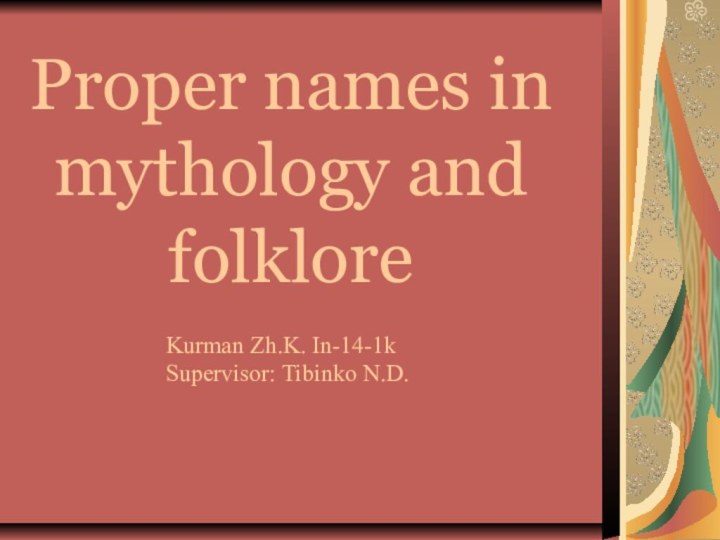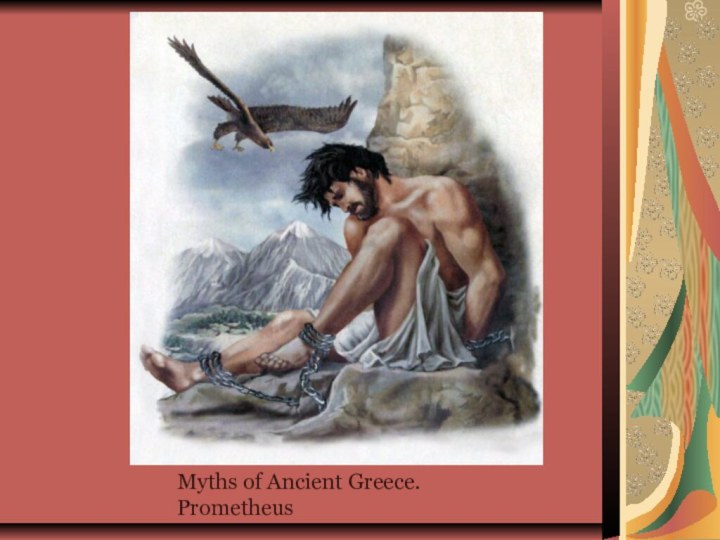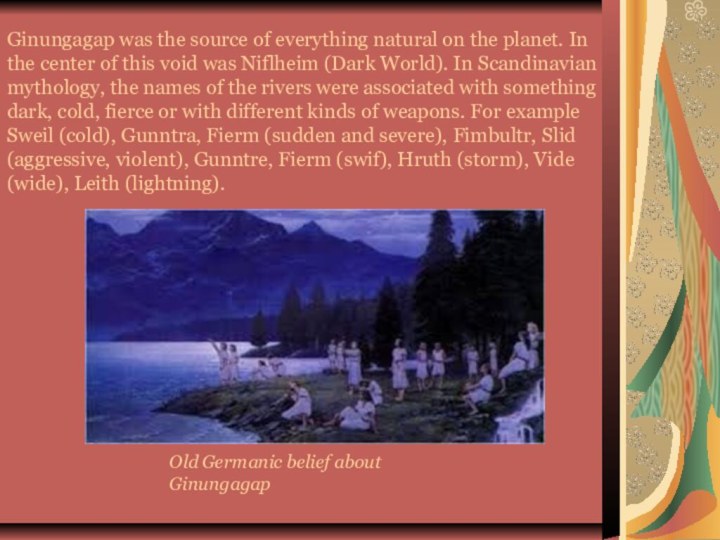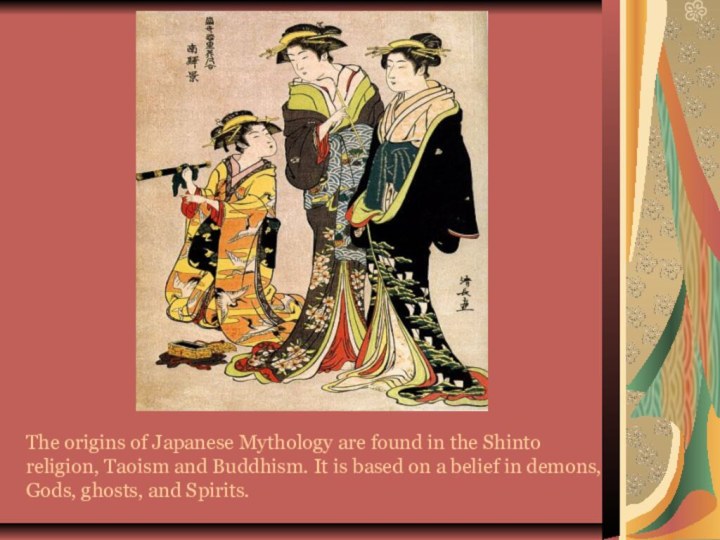- Главная
- Разное
- Бизнес и предпринимательство
- Образование
- Развлечения
- Государство
- Спорт
- Графика
- Культурология
- Еда и кулинария
- Лингвистика
- Религиоведение
- Черчение
- Физкультура
- ИЗО
- Психология
- Социология
- Английский язык
- Астрономия
- Алгебра
- Биология
- География
- Геометрия
- Детские презентации
- Информатика
- История
- Литература
- Маркетинг
- Математика
- Медицина
- Менеджмент
- Музыка
- МХК
- Немецкий язык
- ОБЖ
- Обществознание
- Окружающий мир
- Педагогика
- Русский язык
- Технология
- Физика
- Философия
- Химия
- Шаблоны, картинки для презентаций
- Экология
- Экономика
- Юриспруденция
Что такое findslide.org?
FindSlide.org - это сайт презентаций, докладов, шаблонов в формате PowerPoint.
Обратная связь
Email: Нажмите что бы посмотреть
Презентация на тему по английскому языку на тему: Proper names
Содержание
- 2. Proper names can be observed from semantic,
- 3. Difference between mythology and folkloreThe main difference
- 4. Myths of Ancient Greece. Prometheus
- 5. In myths and ancient folklore works, proper
- 6. Old Germanic belief about Ginungagap Ginungagap was
- 7. The origins of Japanese Mythology are found
- 8. «The Shogun» is a novel by James Clavell 1975
- 9. By analysis provided in this paper, the
- 10. Скачать презентацию
- 11. Похожие презентации
Proper names can be observed from semantic, cultural and social angles by establishing differences between mythology and folklore, verifying differences between common nouns and proper names, and finally, analyzing examples from different cultures to find out







































